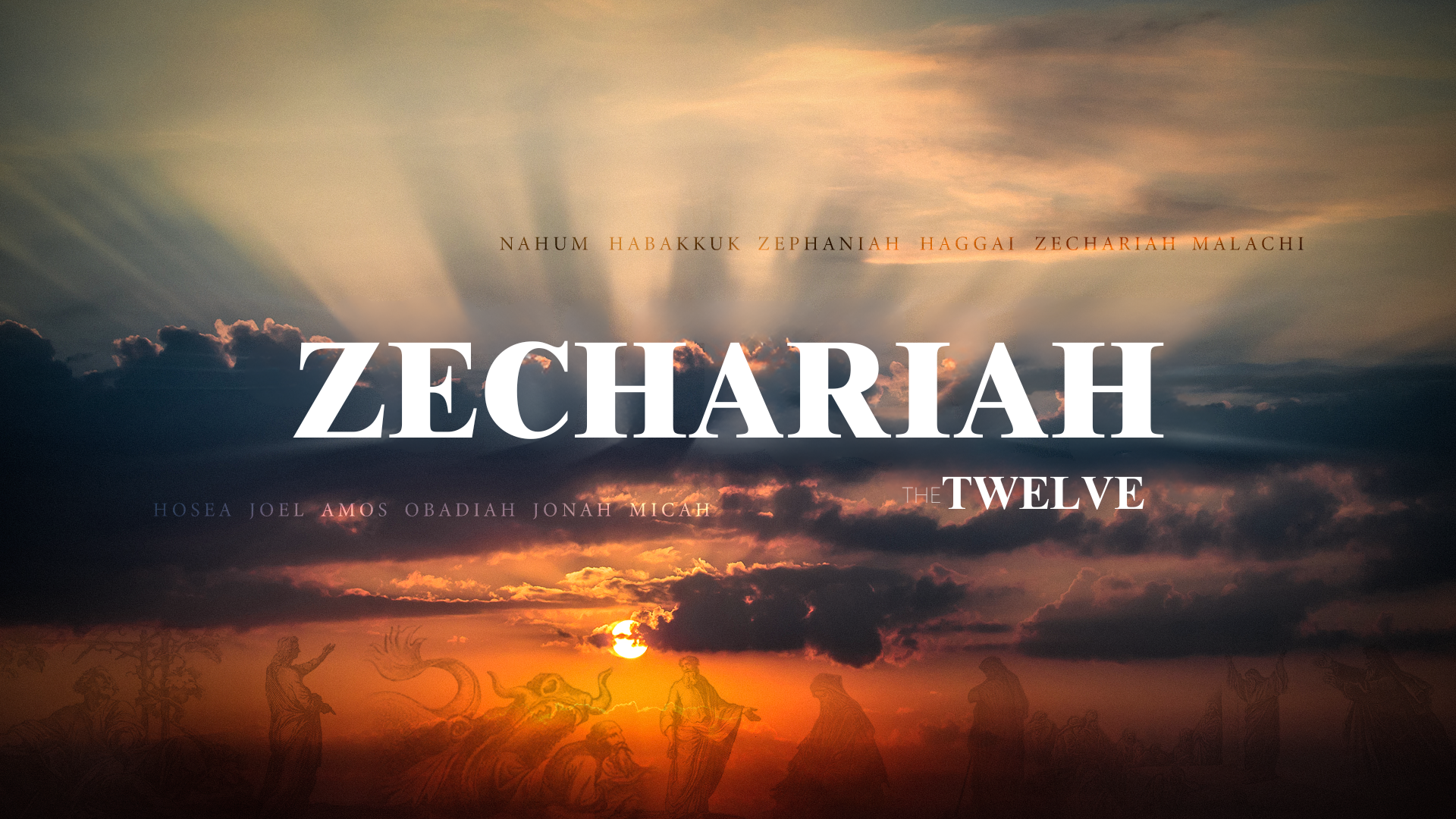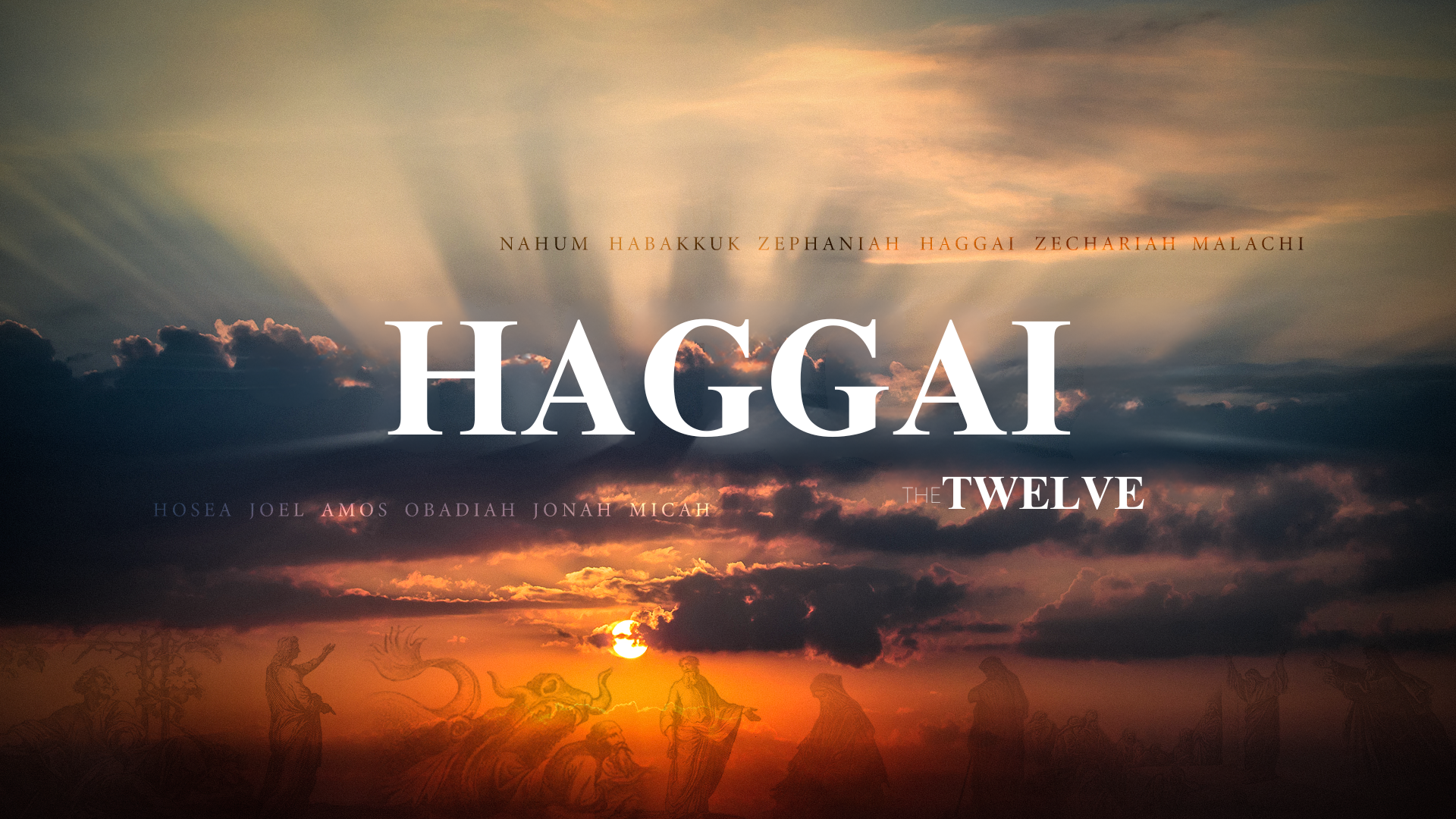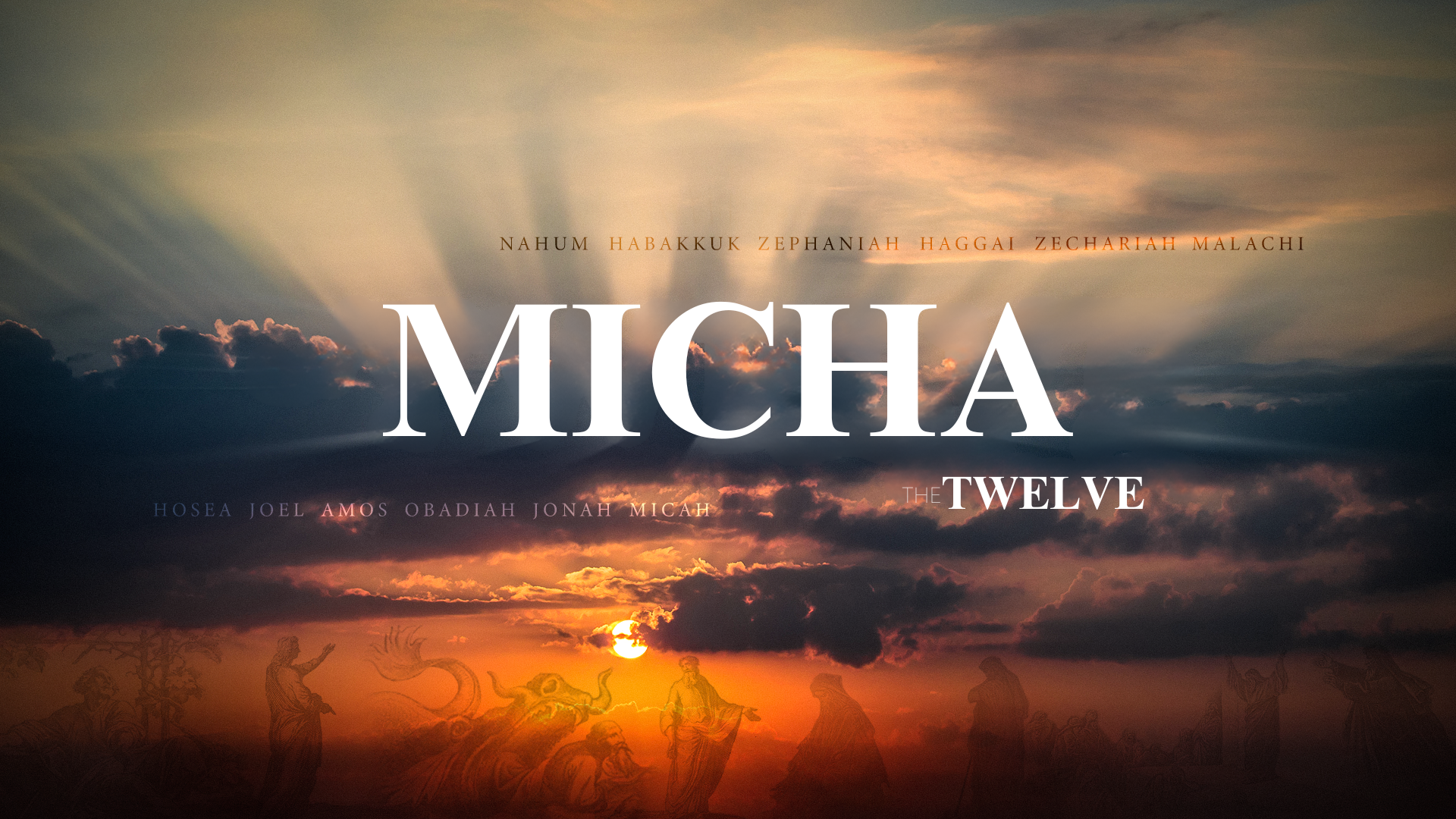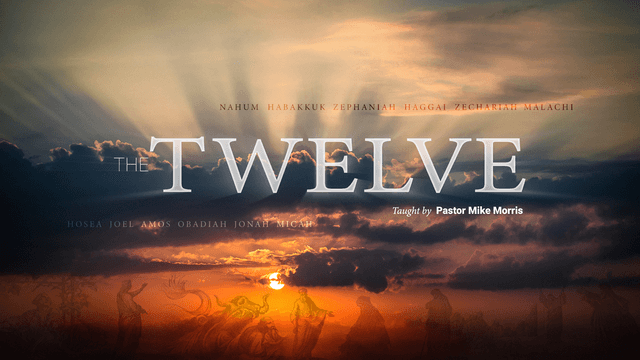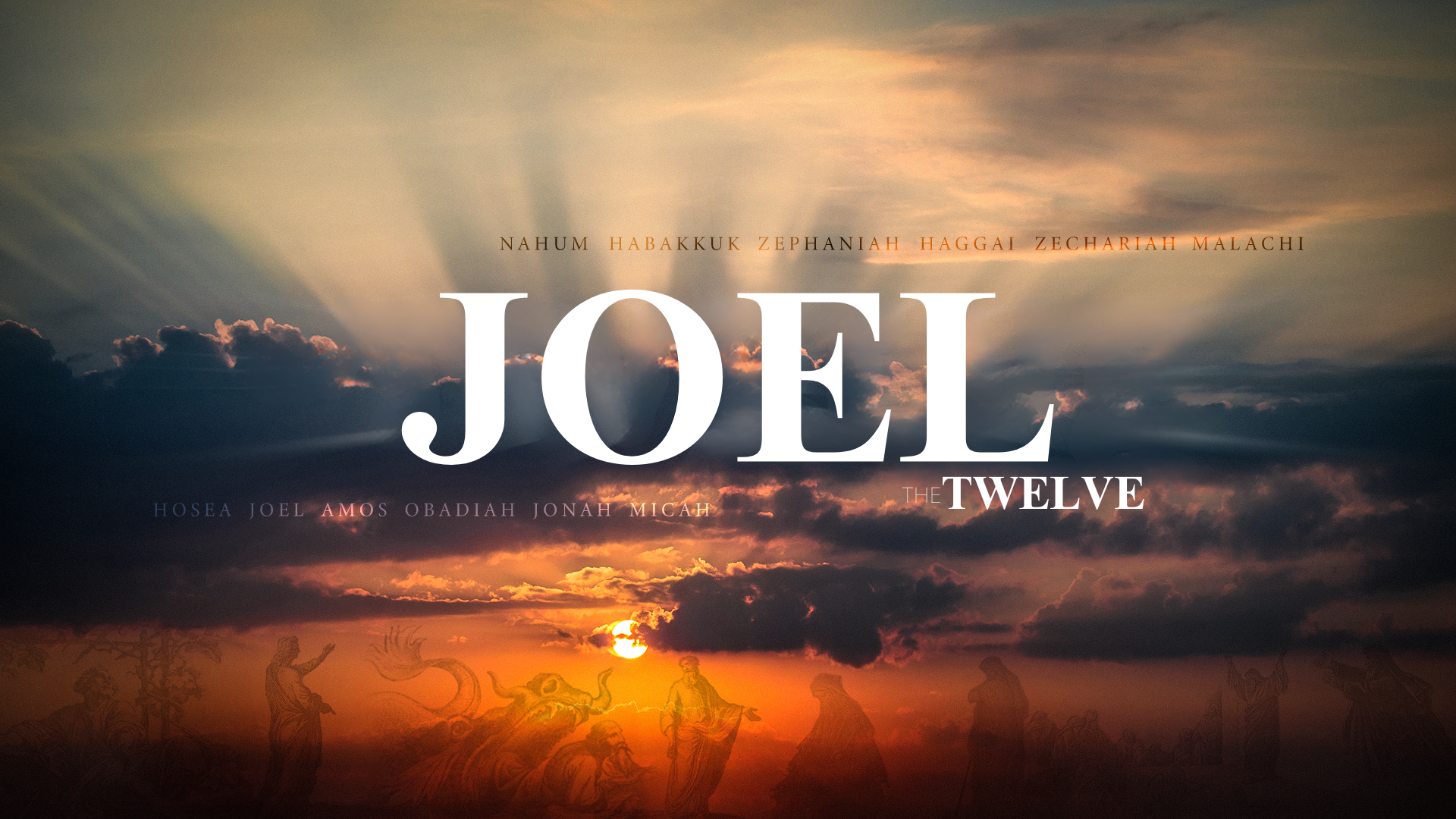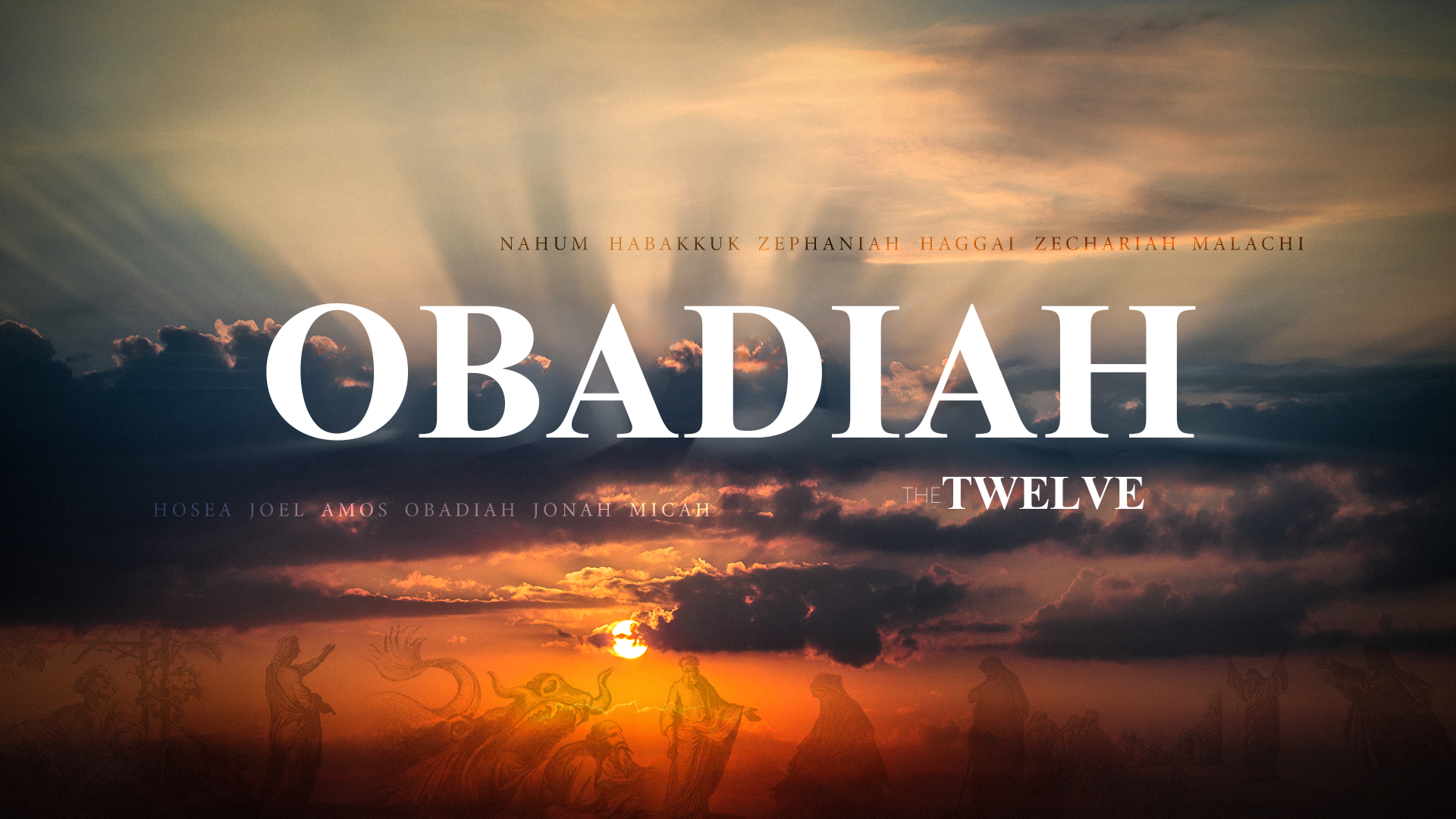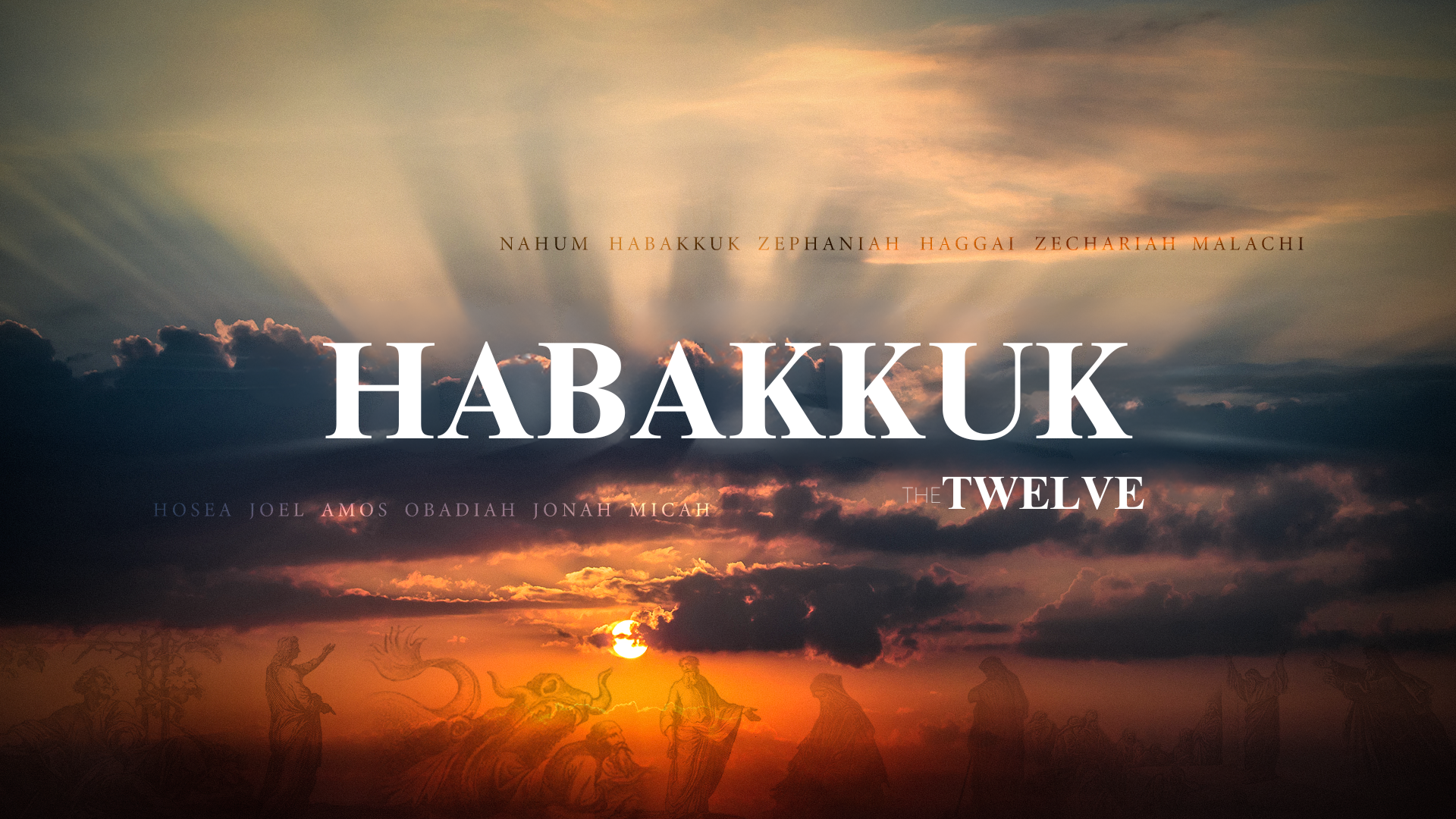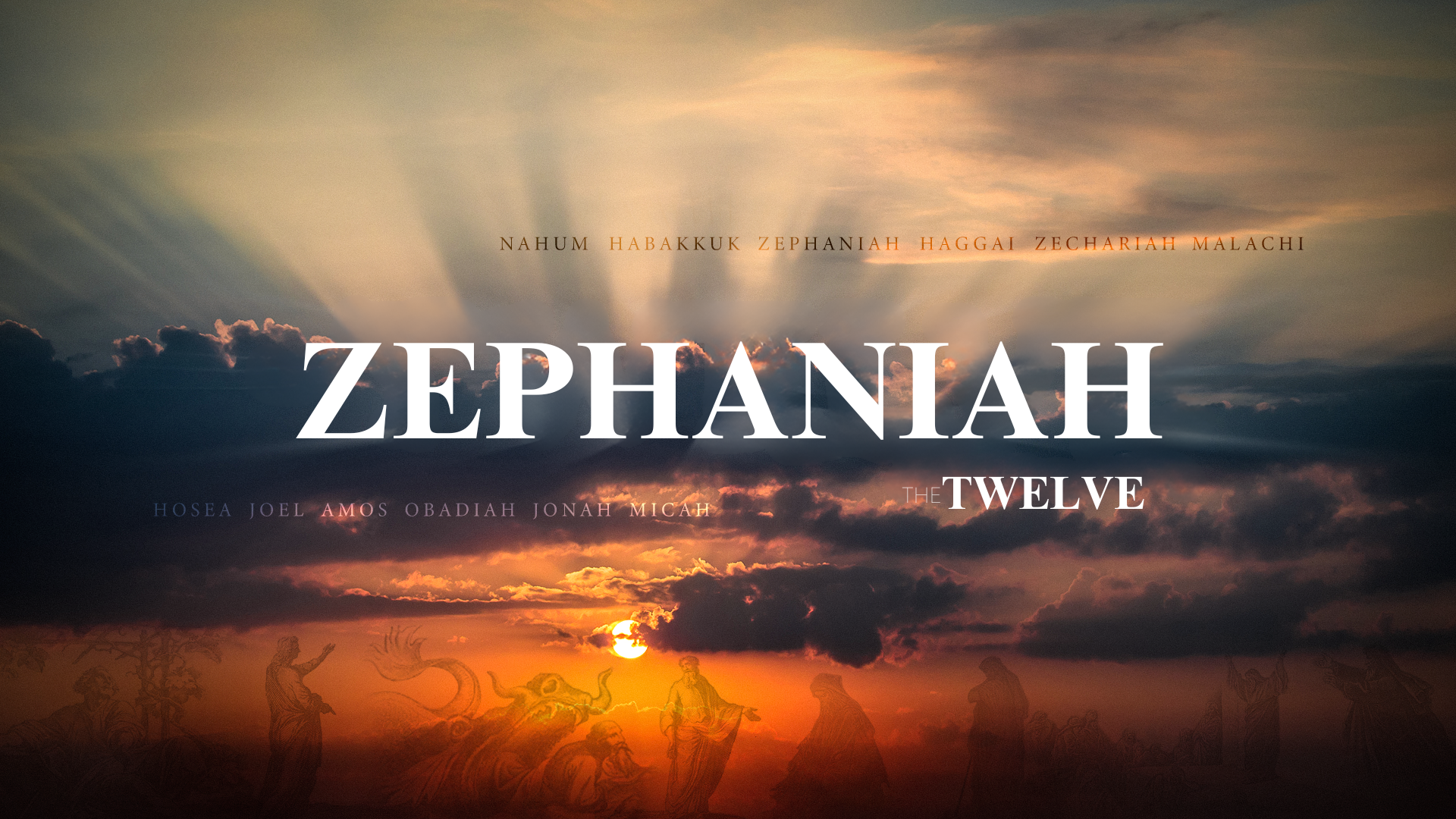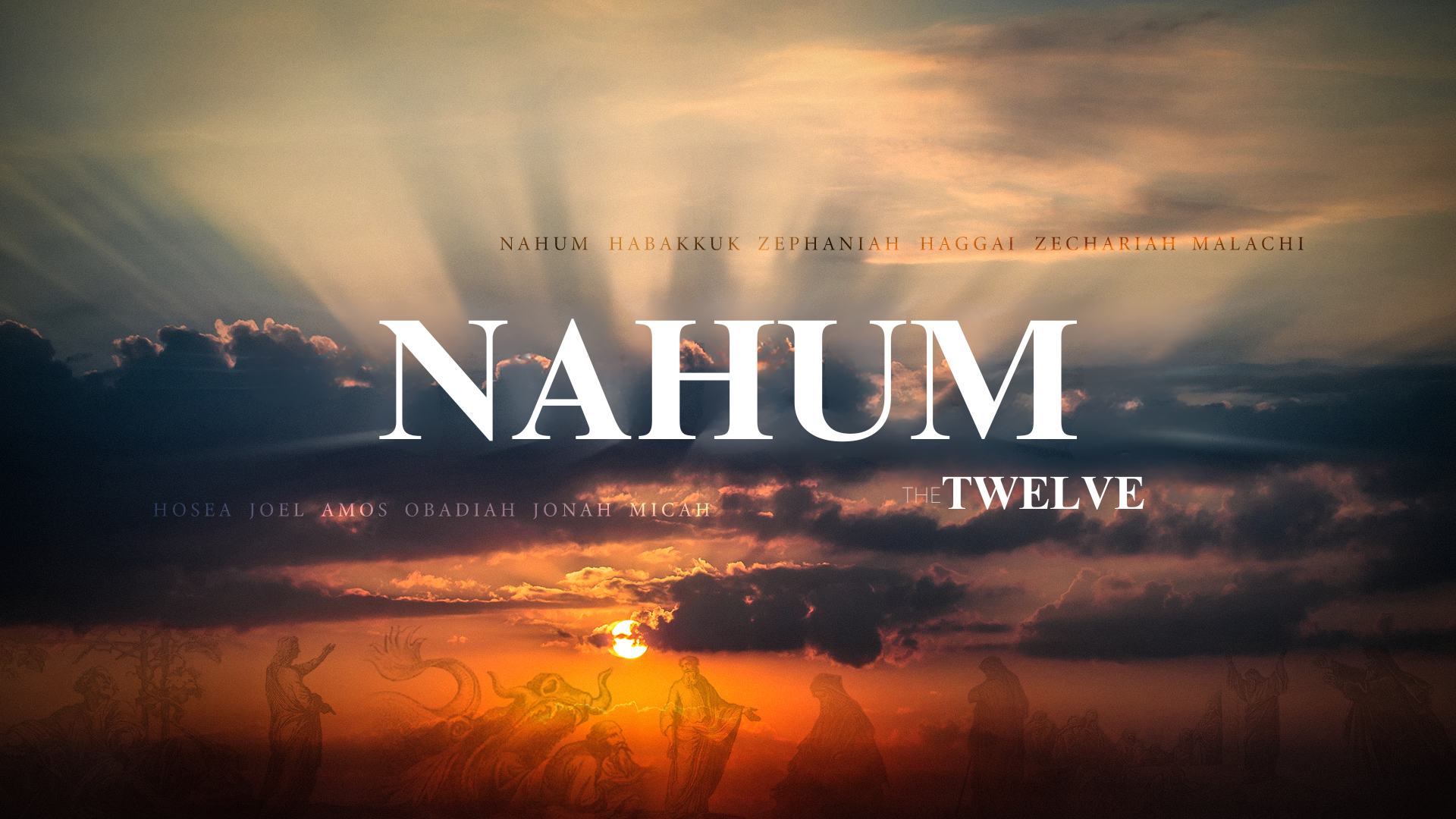MANUSCRIPT
Welcome back to our study of the Twelve, the ancient Hebrew name for the Old Testament books that we call the minor prophets. The last twelve books in your Old Testament.
Let’s open with prayer.
Today we begin our study of the marvelous book of Zechariah as we consider an introduction to the book and then look closely at the first six verses, which serve as an introduction and prologue to the book as a whole. we’ll consider several key elements of this amazing prophecy, particularly the themes of the book. because of its length, fourteen chapters, we’re beginning this study this Sunday morning, but continuing it on Wednesdays, since I expect this study will take a considerable number of sessions. our first Wednesday is this week, March 26th. as we start, let’s set the book in context.
Let’s look at the timelines of the two Israelite nations in the time of the divided monarchy, Israel in the north and Judah in the south.
The prophetic voice ceased in the north in 722 BC, as the Assyrians crushed Israel, taking them into captivity, an exile from which they never returned.
Judah endured another 135 years before falling to the Babylonians, the nation that conquered the Assyrians. our studies of Jonah through the book of Haggai are available on our website, vbvf.org, under the “Old Testament” tile. look for the series entitled “The Twelve”.
In addition to the historical setting, let’s review some other important features.
Author: the author of the book is the priest and prophet, Zechariah. he is mentioned in Ezra 5 and 6, as the historical counterpart to this prophecy, and according to Nehemiah 12.1, he returned from Babylon to Judah with Zerubbabel the governor and Josiah the High Priest. verse 16 adds that he was a priest, the “head of his father’s house”. Zechariah stands alongside Haggai and Malachi as the final prophets of the OT. Zechariah’s name means “Yahweh remembers” which is the perfect message for this moment in Israel’s history. there is one surprising NT reference to Zechariah, spoken by Jesus Himself and found in the gospels of Matthew and Luke. Matthew writes in 23.29-35. listen carefully. 29“Woe to you, scribes and Pharisees, hypocrites! . 32 Fill up, then, the measure of your fathers. 33 You serpents, you brood of vipers, how are you to escape being sentenced to hell? 34 Therefore I send you prophets and wise men and scribes, some of whom you will kill and crucify, and some you will flog in your synagogues and persecute from town to town, 35 so that on you may come all the righteous blood shed on earth, from the blood of righteous Abel to the blood of Zechariah the son of Barachiah, whom you murdered between the sanctuary and the altar. Along with other prophets, Zechariah was martyred.
Date: The book begins in the same year as Haggai’s prophecy, 520 BC, in the eighth month. Zechariah’s visions, beginning in 1.7, happen on the 24th day of the eleventh month of the same year. the final six chapters, 9 through 14, appear to have been written later, perhaps considerably later, than the first eight chapters.
Structure: Zechariah is made up of four sections. this morning, we’ll cover the prologue and the call to repentance, and then on Wednesday we’ll begin examining the eight visions of Zechariah, which he received all in a single night. section three contains three narratives, ending with 8.23. the final section, chapters 9 through 14, are two prophetic oracles, each in three parts. they are very different from the rest of the book and will require our best effort to understand and interpret.
Setting: Judea was taken into captivity to Babylon by Nebuchadnezzar in three waves – in 605 BC, 597 BC, and 586 BC. After Babylon was overthrown by Cyrus the Great and the Medo-Persian Empire, Cyrus decreed that the people of Judah could return to their land. the first group of about 50,000 Judeans were led by Zerubbabel, the governor, and Joshua, the High Priest, both of whom we met in the book of Haggai. In this group were both Zechariah and Haggai, who had been born and raised in exile and both began their prophetic ministries in 520 BC. together with Malachi, they were known as the “latter prophets” to distinguish them from the “former prophets,” those who came before the exile. these three were used of the Lord in a special way, for their task was to both challenge and encourage the returning exiles. Haggai did that by challenging the Judeans physically, reminding the exiles of their selfish priorities and urging them to turn from building their own homes and finish the work of building God’s temple. Zechariah followed those messages with visions and oracles to challenge the Judeans spiritually by communicating to them the hope and comfort of their covenant God and assuring them of His continued presence and faithfulness. and this assurance was not just in their day as the Temple and the city of Jerusalem were rebuilt, but extended to the very end of the age, including prophecies of both the first and second advents of their Messiah King, Jesus Christ.
Themes: There are many themes throughout this wonderful book. I’ll call out just four so we can watch for them during this study.
Jesus Messiah: Zechariah is one of the most Christ-centered prophetic books in the OT, second only to Isaiah. Jesus Christ is presented as the Messiah of Israel, in a way that today we recognize in both His first coming and His still-future second coming. there are many messianic prophecies which appear here in Zechariah, including those associated with the first coming of Jesus, such as His arrival in Jerusalem on the foal of a donkey (9.9), His betrayal for the price of thirty pieces of silver (11.12), the casting of those silver pieces back into the house of the Lord (11.13), His crucifixion (12.10), and His death as the Shepherd of Israel (13.7), a prophecy to which Jesus Himself refers in Matthew 26.31. and Jesus’s second coming is predicted as well, including His coming in glory and sovereign power (9.10), His ingathering of His people (chapter 10), His return to the Mount of Olives, creating an earthquake splitting the mount in two (14.4), and the final, culminating Day of the Lord (chapter 14). the focus on the Person and Work of the Messiah is presented in Zechariah in vivid prophecies and visions that predict key elements of both the coming and return of Jesus Messiah. it is unique in its scope and detail and was surely a strong encouragement to Israel, but no less to believers in our day, who find in this book a solid foundation for our understanding of Jesus as our Savior, but also as our soon-coming King.
Yahweh God: mentioned more than 130 times, He is the covenant God of Israel who acts in power, wisdom, and compassionate love to protect, strengthen, and ultimately redeem His people. As Zechariah’s name reminds us, God does remember both His people and His promises, even in the “day of small things” as in chapter four, and He is faithful to keep His word. He reveals Himself over and over as the “Lord of Hosts,” the commander of angelic armies ready to do His bidding in support of Israel, a powerful Name guaranteeing the faithful completion of all He had said.
Repentance: from the first chapter, as we’ll see in a few minutes, Zechariah is relentless in his proclamation that Yahweh calls His people to be holy as He is holy. all the blessings to follow, from 1.7 to the end, must be understood in the context of the repentance of the people of Judah. this is a challenging message for believers throughout history, including us today, as we will see.
Comfort for Israel: finally, this book is the most encouraging message the Judeans could have imagined. it assured them that Yahweh had not forgotten them, or worse, cast them off. despite their persistent hardness of hearts and willful sin, and after seventy years in exile, God was not silent, but He spoke again, first through Haggai then Zechariah, and finally through Malachi, to give them His pledge that He would keep His promises to them, that His covenant faithfulness was sure and certain, that He would fulfill every word that He had spoken to them. It’s difficult to imagine what this prophecy meant to a people who had experienced all that they had experienced. to be diminished from millions to just fifty thousand. to have returned to their land only to find it destroyed. Jerusalem lying in rubble and Solomon’s Temple a burned-out pile of useless stones. facing opposition from their enemies and apathy from their own people. I’m sure they were felt discouraged, afraid, confused, lost. but God was there, even in their despair, and He would keep His word to them. not because they were worthy, but because of His own unchanging grace. and the people respond to this proclamation in a way Israel never had before, returning to their covenant God, followed by the blessings of national unity, physical restoration, and spiritual redemption. the long-awaited redemption of the house of Jacob will finally come to pass as chapter 13, verse 9 says, “They will call upon my name, and I will answer them. I will say, ‘They are my people’; and they will say, ‘The Lord is my God.’” . so there is a central theme to the book, and it’s this; Take hope and comfort, Israel – Yahweh remembers and will keep His word!
isn’t that great news?
What a glorious book this is, and what an overwhelming picture we are given of our glorious God. let’s get started! Let’s think about this prologue this way: as instructions on.
How to Turn Around, Step One: Listen to God.
“Return to Me, and I will Return to You”
Let’s hear the text again.
In the eighth month, in the second year of Darius, the word of the Lord came to the prophet Zechariah, the son of Berechiah, son of Iddo, saying, 2 “The Lord was very angry with your fathers. 3 Therefore say to them, Thus declares the Lord of hosts: Return to me, says the Lord of hosts, and I will return to you, says the Lord of hosts.
Verse 1 starts with something curious, but not too difficult. here Zechariah is referred to as the son of Berechiah, which is also how Jesus refers to him in Matthew 23.35, but Nehemiah 12.16 refers to him as the “son of Iddo” and, in fact, as the head of the priestly house of Iddo. so is Zechariah the son of Berechiah or Iddo? The answer is both. in Jewish genealogies, it’s not uncommon to skip a generation, but in this case, it also seems likely that Berechiah died at a fairly young age, probably in Babylon, and his son, Zechariah, stepped up to take his place in the family and as the head of the priestly house of his grandfather, Iddo. so Zechariah is the son of both his father, Berechiah, and his grandfather, Iddo.
The prologue truly begins in verse 2, with the bad news first: “The Lord was very angry with your fathers.” The Jews were God’s chosen people, so why would He be “very angry” with them? If you read the OT, the answer is obvious: their persistent sinful refusal to follow Yahweh, His ways, and His law. the historical books tell the plain truth that the people repeatedly fell away from God, and the prophetic books are filled with warnings of judgment, calls to repent, and promises of forgiveness.
But by Zechariah’s day, Israel had been taken into exile in Assyria for their rebellious sin, and the Judean exiles had just returned from the Babylonian captivity for their sin. the people knew very well the anger of God.
Now, when we might rightly expect further judgment on the people, or at least warnings against continued rebellion, instead God speaks a word of hope and comfort to His people. He offers them the opportunity to return to Him, and amazingly, He promises to return to them, though they were unworthy and sinful.
Three times in one sentence God affirms His identity and power. He is the Lord of Hosts, whose limitless sovereign authority stands ready to forgive if His people will but return to Him. it would be gracious beyond measure if God simply accepted His people back if they came home on their own, but instead He invites them, He calls them to return.
What does it mean to “return to God”?
To recognize our own sinful actions as sinful, to call ourselves out for our own iniquity, much as David did in Psalm 51.3-4. 3 For I know my transgressions, and my sin is ever before me. 4 Against You, You only, have I sinned and done what is evil in Your sight, so that You may be justified in Your words and blameless in Your judgment. . it means to acknowledge our guilt before a holy God.
It also means to remember His goodness. He is a gracious and merciful God, slow to anger and abounding in loving kindness. He is just and holy, and quick to forgive, without diminishing His holiness. we must never doubt that our God is a good God, for that would be to doubt His character and nature. Psalm 111.2-4 reminds us, 2 Great are the works of the Lord,
studied by all who delight in them.
3 Full of splendor and majesty is his work,
and his righteousness endures forever.
4 He has caused his wondrous works to be remembered;
the Lord is gracious and merciful.
Returning to God also means repenting from our sins to turning away from our rebellion against Him. The Lord calls us to be set apart from the world. I Peter 1.14-16 says, 14 As obedient children, do not be conformed to the passions of your former ignorance, 15 but as He who called you is holy, you also be holy in all your conduct, 16 since it is written, “You shall be holy, for I am holy.” We are not to be conformed to the world but transformed into the image of Christ. see Romans 12 for more on that. it is only possible to live in a holy way in this world by the power of the Holy Spirit, so we must seek His help and strength as we obey the Lord’s command.
This call to repentance is, of course, echoed by both John the Baptist and Jesus Himself in the gospels. both the Forerunner and the Christ preached the same message on the first day of their ministries: “Repent, for the kingdom of heaven is at hand.” (Matthew 4.17)
One final thought on repentance: we usually think of repentance as dealing with the past, and it does. but it’s not just about the past. repentance also gives peace and joy in the present. knowing you’ve returned to God is a blessing for our souls, as we see in Romans 5.1. Therefore, since we have been justified by faith, we have peace with God through our Lord Jesus Christ. . and we experience great hope for the future, too. just as the Judeans’ hearts rose with hope when they turned back to God, so will our hearts feel the solid rock of God’s grace beneath our feet as we repent of our sins and turn back to Him.
How to Turn Around, Step Two: Don’t Persist in Sin
“Why will you die?”
Let’s turn to the next passage.
Do not be like your fathers, to whom the former prophets cried out, ‘Thus says the Lord of hosts, Return from your evil ways and from your evil deeds.’ But they did not hear or pay attention to Me, declares the Lord. 5 Your fathers, where are they? And the prophets, do they live forever? 6 But My words and My statutes, which I commanded My servants the prophets, did they not overtake your fathers?
The Lord says, “You’ve seen the disaster of your fathers: reveling in their sin, rejecting the warnings of the prophets, refusing to repent and turn from their evil ways. they didn’t pay attention. don’t be like them. you already know where that road ends. in judgment and exile. ”
The former prophets spoke from God, but the people wouldn’t listen, and so entered into the divine judgment that is inevitable if a person, or a nation, refuses correction and will not change course, even when warned. yet God calls to them again. though the prior generations did not pay attention, this new generation of Jews returning from Babylon had another chance. they needed to hear anew the words of the former prophets.
Isaiah 55.6-7: 6 “Seek the Lord while he may be found;
call upon him while he is near;
7 let the wicked forsake his way,
and the unrighteous man his thoughts;
let him return to the Lord, that he may have compassion on him,
and to our God, for he will abundantly pardon.
Jeremiah 3.12-13a: “‘Return, faithless Israel,
declares the Lord.
I will not look on you in anger,
for I am merciful,
declares the Lord;
I will not be angry forever.
13 Only acknowledge your guilt,
that you rebelled against the Lord your God.
Ezekiel 18.30-31: 30 “Therefore I will judge you, O house of Israel, every one according to his ways, declares the Lord God. Repent and turn from all your transgressions, lest iniquity be your ruin. 31 Cast away from you all the transgressions that you have committed, and make yourselves a new heart and a new spirit! Why will you die, O house of Israel?
There is a terrible price to pay for sin. All of us physically die. there is no avoiding that after the fall in Eden, for Hebrews 9.27 says, “. it is appointed for man to die once, and after that comes judgment. ” . but there is something worse, much worse, than physical death: spiritual death, eternal separation from God and all that is good and holy. for the Judean refugees then, and for us today, there was and is yet an opportunity to turn from our sin and turn to Jesus Christ, for He paid the penalty for our sin and offers us forgiveness. but heed this warning: there will come a time for each of us when the opportunity to repent will end. we must seek the Lord while He may be found.
As we see in verse 6, God’s word, His eternal truth, endures. the prophets were true when they spoke “Thus saith the Lord” and that word was proven true in the experiences of both Israel and Judah as both went into exile. God says to the people of Judah, But they did not hear or pay attention to me, declares the Lord. 5 Your fathers, where are they? And the prophets, do they live forever? 6 But my words and my statutes, which I commanded my servants the prophets, did they not overtake your fathers?
Both the unrighteous – the “fathers” in this passage – and the righteous – the prophets – eventually die. but God’s word abides. what God says is as eternal as He is, for it is the perfect expression of His nature. hear the prophet Isaiah 40.8: The grass withers, the flower fades, but the word of our God will stand forever. Amen and amen!
How to Turn Around, Step Three: Turn Back to God
The People Repent
Let’s continue. what did the people do?
So they repented and said, ‘As the Lord of hosts purposed to deal with us for our ways and deeds, so has he dealt with us.’”
Finally, the people of Judah got it right and responded to God’s grace and mercy. True to His word, God returned to them, just as He promised He would. now they understood both the justice and grace of God and they responded.
There is something about confession and repentance, about positively responding to God’s call to acknowledge our guilt, that truly sets us free. John 8.31 says, So Jesus said to the Jews who had believed him, “If you abide in my word, you are truly my disciples, 32 and you will know the truth, and the truth will set you free.”
Confession and repentance come down to two things: understanding what you’ve done and admitting that God is right to call us wrong. hear the truth of God’s grace and mercy.
How shall we apply these truths?
Application
From the very beginning of this book, Zechariah speaks the word of God to both convict the exiles of walking in the wretched ways of their fathers, but also to renew God’s offer of grace and mercy to the people of Judah.
What about us? What about you? Have you ignored God’s offer of grace and mercy? Have you received God’s grace, even His salvation, yet today you are in a place where you need to hear the call of God again to repent and return, not for salvation, but for continued sanctification?
Here are some actions we can take:
Recognize our sin
Remember the penalty of sin
Realize the truth of God’s forgiveness
Repent of our sin by turning away from it
Return to our merciful God
Are you ready to return to God and move forward in life with Him? Don’t wait – do it today.

Taught by Mike Morris
Associate Pastor of Verse By Verse Fellowship
The Twelve Series
